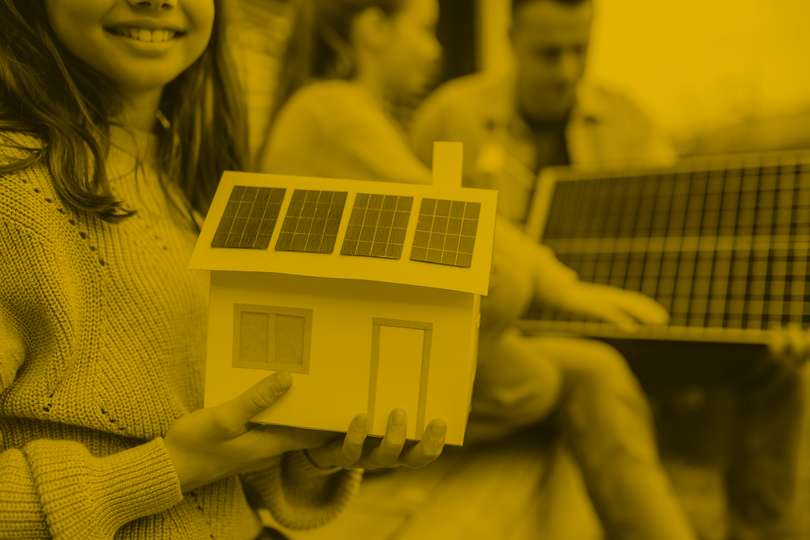
The Pros & Cons of Solar Energy in 2023
Solar energy is a renewable energy source that reduces carbon emissions. But you might be wondering what exactly makes it great, and if there are any downsides? In this blog we’ll explain the pros and potential cons of solar energy.
What are the pros of solar energy?
Environmental Benefits: Renewable Energy Source, Biodiversity Preservation and Air Pollution Reduction
One of the most significant advantages of solar energy is that it’s better for the environment. By drawing on energy from the sun, we reduce our reliance on fossil fuels, which helps mitigate climate change. Additionally, solar energy plays a vital role in preserving biodiversity and decreasing air pollution, contributing to a cleaner, healthier planet.
Reduced Energy Bills and Government Grants & Schemes Available for Solar Energy
Solar energy isn't just a boost to the environment; it's also a smart financial move. By installing solar panels, you can significantly reduce your energy bills, saving both money and resources. What's more, many governments offer grants, incentives, and schemes to encourage the adoption of solar energy, making the transition even more affordable.
Sell Your Energy Back to Us
At So Energy you can take advantage of our Smart Export Guarantee (SEG) where we’ll buy back any energy you export for 20p per kW/h. You can take advantage of this great offer if you’ve had your solar panels and battery installed by us. You can read more about SEG here.
Low Operating Costs
If you’ve had solar panels installed, the ongoing operating costs are minimal. Solar panels have very few moving parts, so maintenance requirements are low. This means there isn't a regular financial commitment to them once you’ve had them installed.
Energy Independence and Security
Solar energy grants you a level of energy independence that usual fossil fuel methods don’t. With your own solar panels, you become less reliant on the grid for your energy.
Technological Innovations and Improvements
The solar energy industry is an innovative and fast moving landscape. From more efficient solar cell designs to improved energy storage solutions, innovation is driving solar energy's effectiveness and accessibility.
Long Lifespan
Solar panels are built to last. Most come with warranties spanning 20 to 25 years, with actual lifespans often exceeding these estimates. This durability ensures that your investment pays off for years to come.
Scalability
Solar energy systems are highly scalable. Whether you're looking to power a single household or an entire business, solar energy can be adapted. This makes solar a viable option for a host of different circumstances.
What are the cons of solar energy?
Initial Investment Costs
While the long-term benefits are impressive, the initial cost of purchasing and installing solar panels can be a barrier for some. However, it's crucial to remember that this upfront investment eventually pays off through potential savings.
Dependence on Weather Conditions
Solar panels rely on daylight to generate electricity, which means their efficiency can be affected by weather conditions. However, they will still generate energy on cloudy days or when there is reduced sunlight.
Energy Storage Challenges
Storing excess energy generated during sunny periods for use when the sun isn't shining is a challenge for the industry. We also provide battery technology to help overcome this obstacle.
Space Requirements and Aesthetic Considerations
Installing solar panels requires physical space, typically on rooftops or open areas. This can be a concern for properties with limited space. However, innovative designs and integration options are constantly evolving to suit more people’s circumstances.
Geographical Limitations
Solar energy generation is influenced by geography and climate. Locations with a lot of sunlight are naturally better suited for solar installations, while areas with less consistent sunlight may experience reduced efficiency. Nevertheless, solar energy's global potential remains significant.
Land Use Conflict
Large-scale solar projects sometimes face opposition due to land use conflicts. Balancing the need for clean energy with environmental and land use considerations is an ongoing challenge that requires careful planning and community involvement.
Final thoughts
The benefits of solar are undeniable – from reducing environmental impact to cutting energy costs and fostering energy independence. As technology continues to advance, the challenges are being tackled, making solar energy an even more viable option for a lower carbon future.
FAQ’s
How does solar energy compare to other renewable energy sources?
Both wind and hydroelectricity are great renewable energy sources. But wind relies more heavily on the weather and hydroelectricity has a greater environmental impact.
The UK government has ambitious targets for solar energy capacity, aiming to reach 40GW by 2030. This indicates a strong push for solar installations across the country.
Share this article